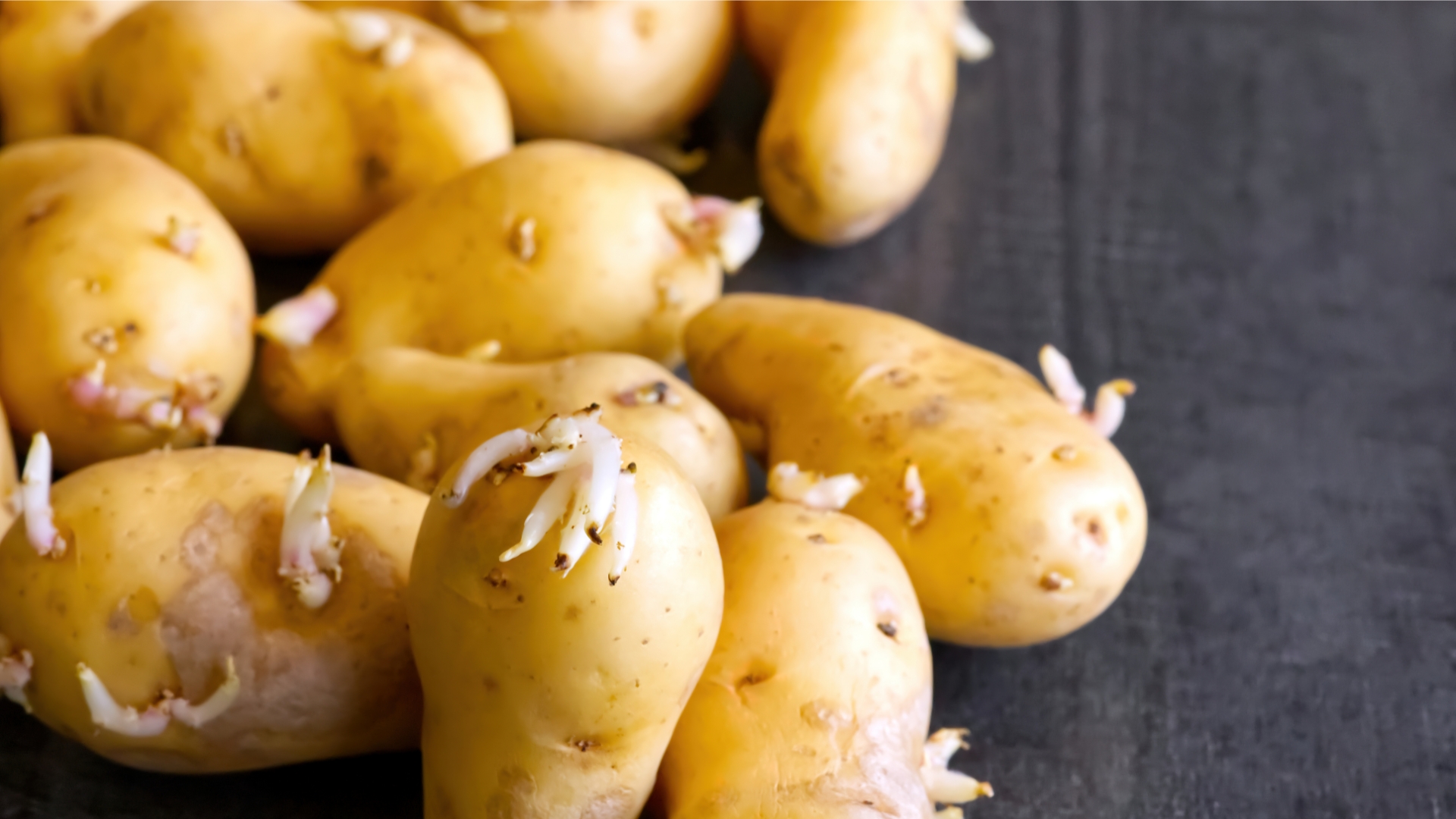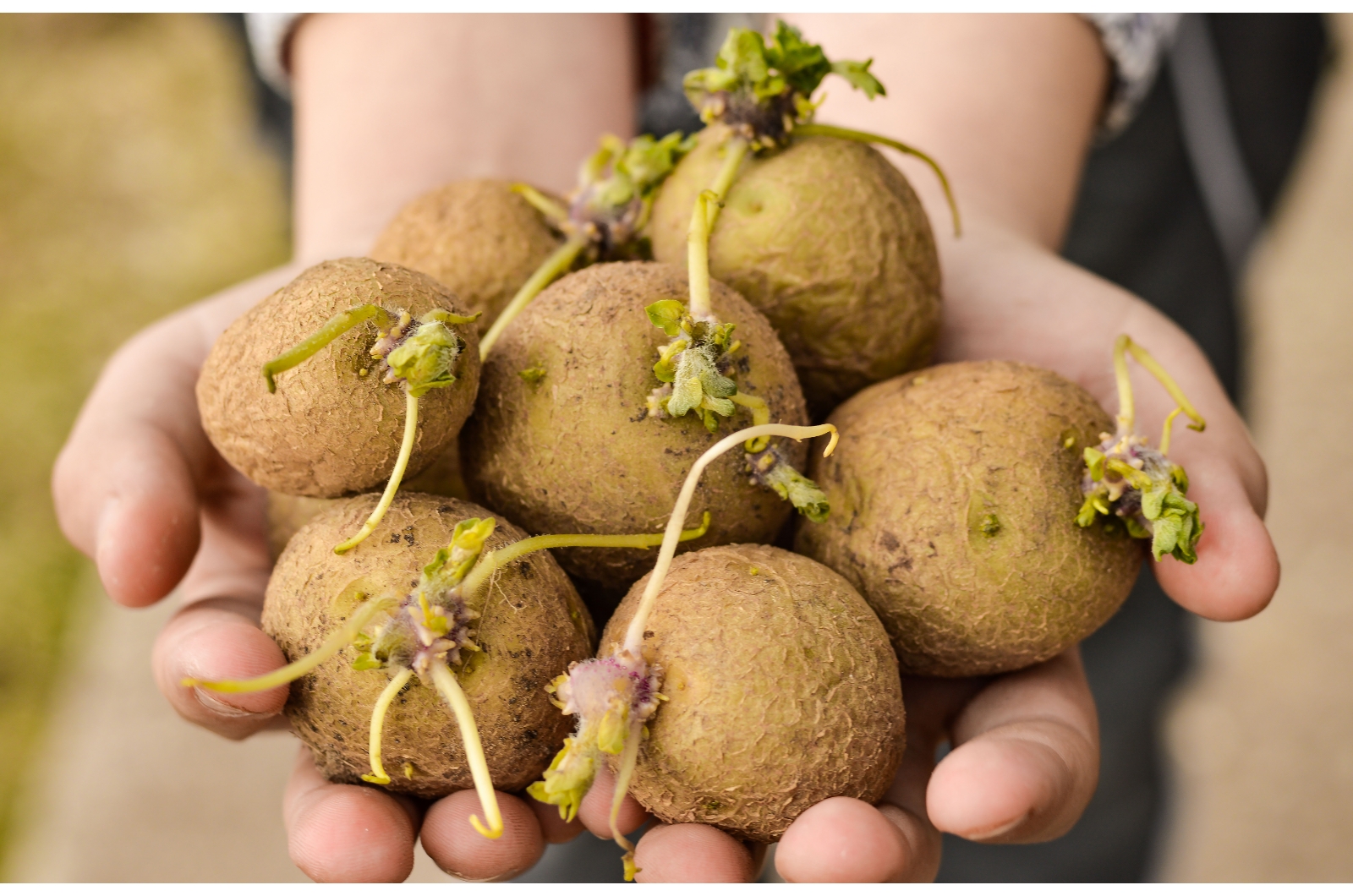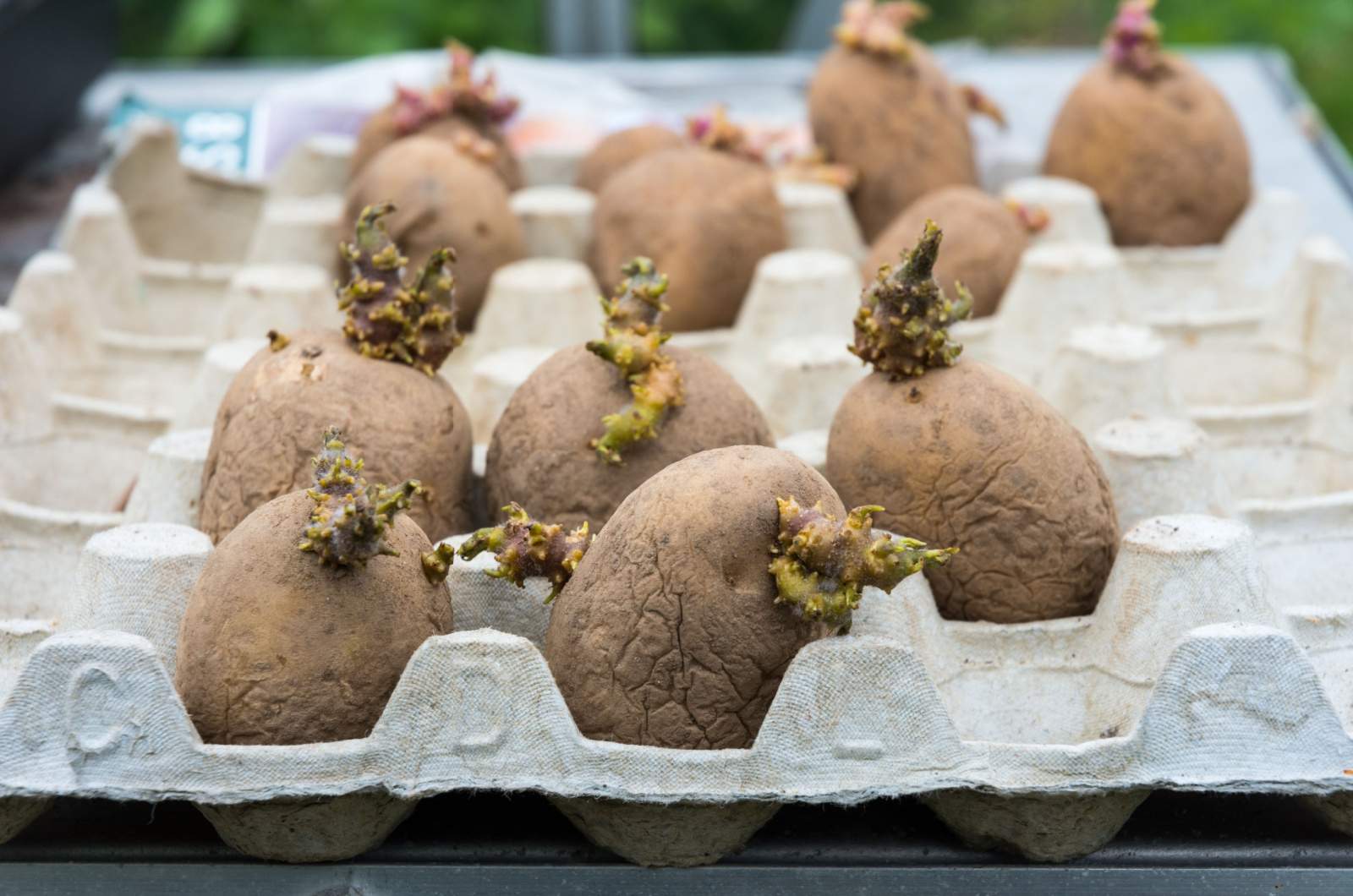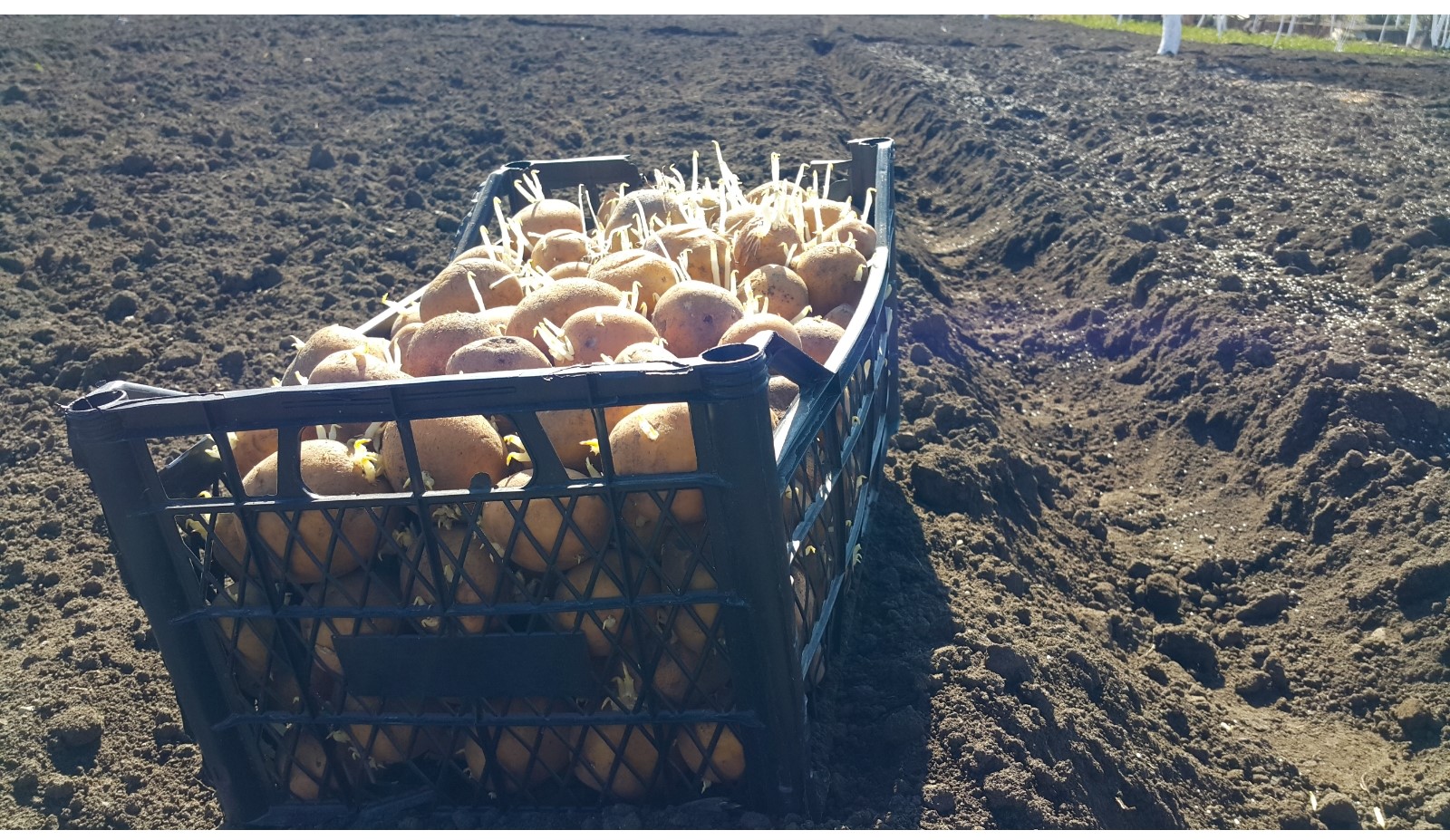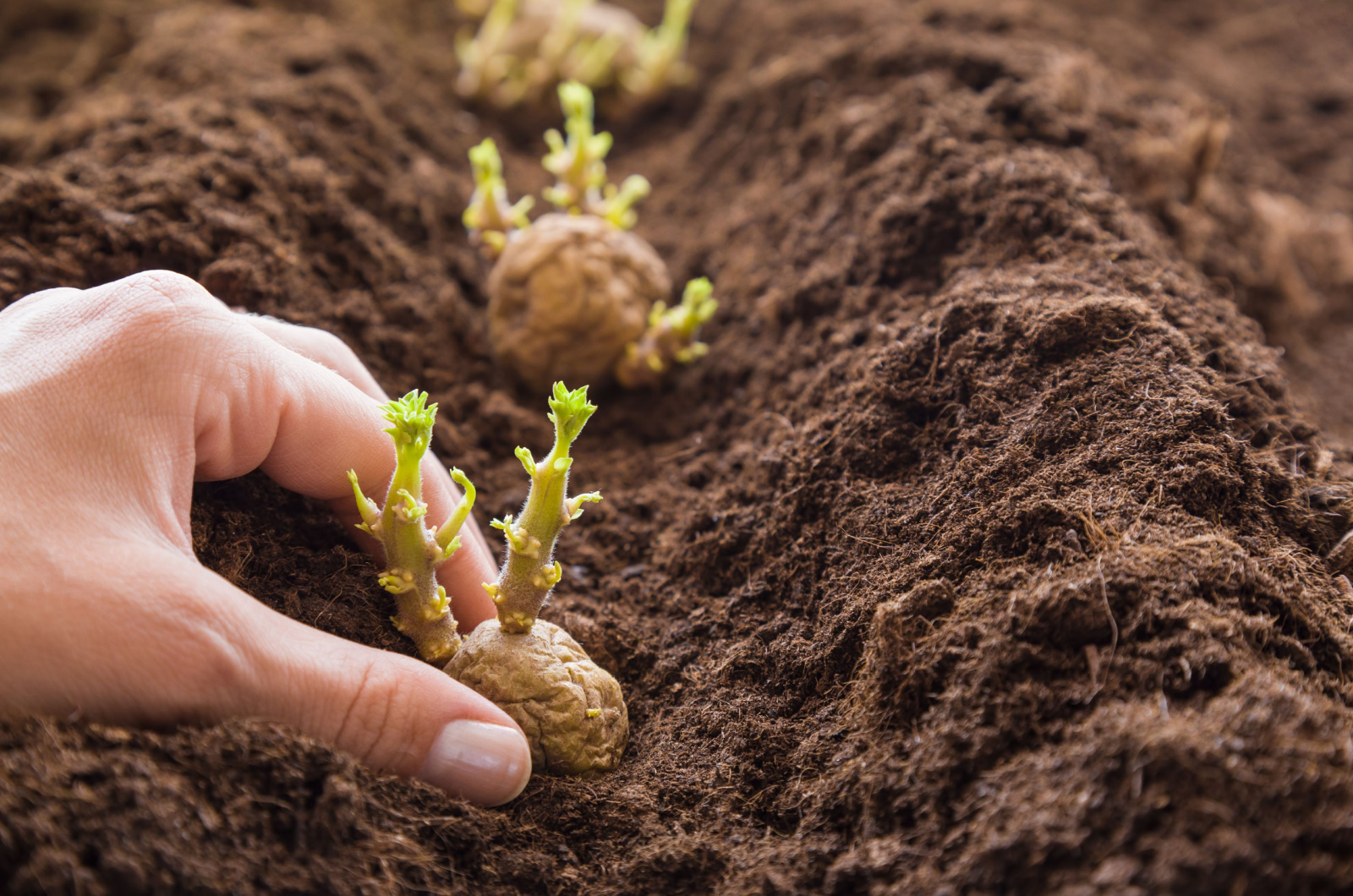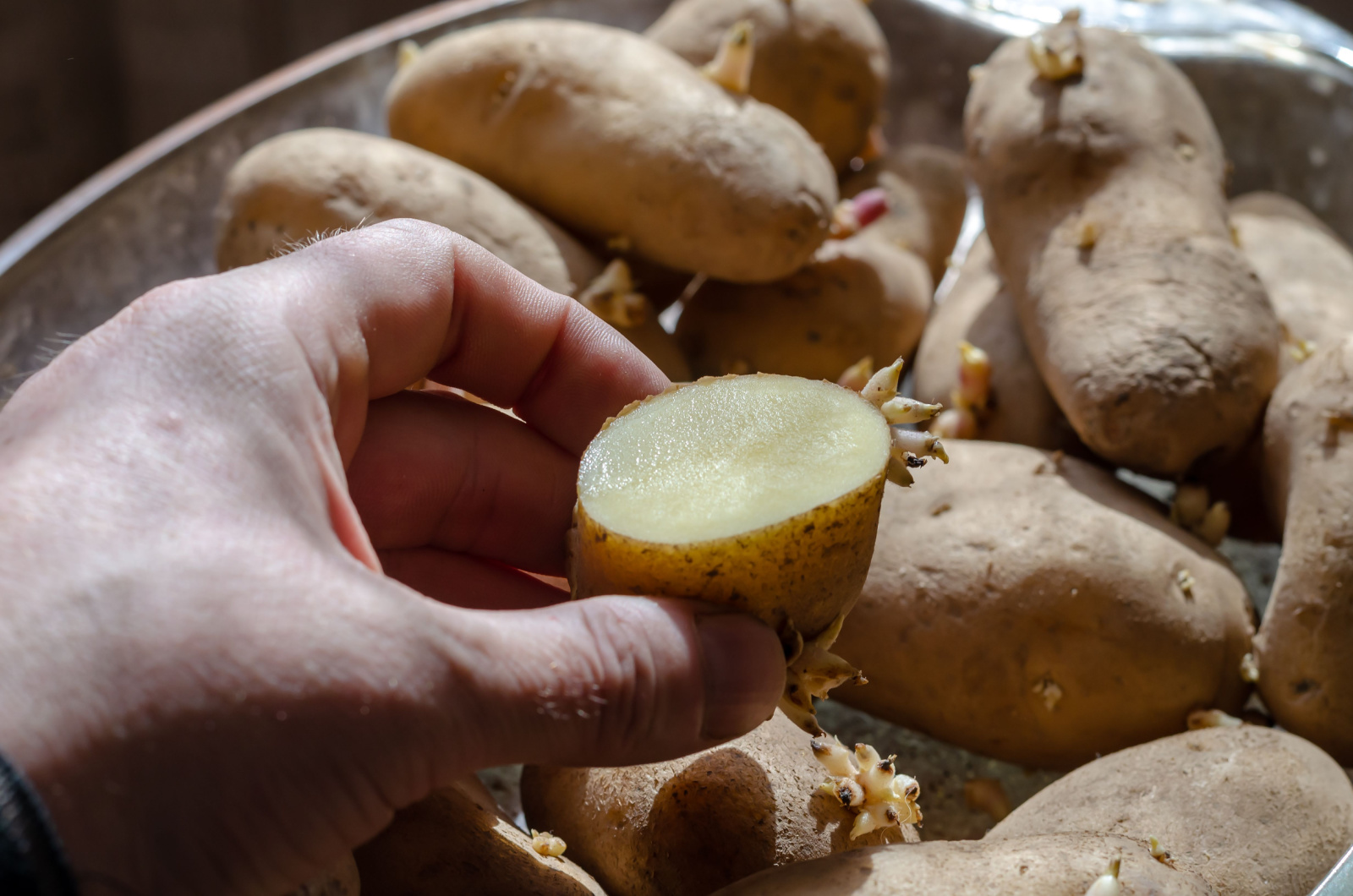Chitting is the term for potato sprouting. We’ve all seen those forgotten potatoes in our cupboards with sprouts the size of an earthworm!
The good news is that you can eat these potatoes as long as you get rid of the skin and chits. The even better news is that you can plant them and grow more of this tasty veg!
And if you don’t know how or whether you should encourage your potatoes to sprout, here’s everything you need to know about this process.
Let’s get started!
Will Chitting Potatoes Increase Your Yield?
Technically, chitting potatoes won’t give you more potatoes. One seed potato should land you with around 10 new ones, but it all depends on the growing conditions and the weather.
Chitted potatoes will do the same!
Yet, sprouting potatoes before planting them will give you a head start and speed up your harvest. That way, you may even be able to succession-plant them and double your yield.
Chitting Potatoes
If you leave your potatoes unattended for a long time, they will chit on their own. But if you want to speed up the sprouting of your potatoes, here’s what to do!
Place your potatoes in egg cartons with the eyes (small stubs, dimples) facing upwards. If your potatoes are too large for egg cartons, you can place them in something else. The key is to keep them in place so that they don’t roll around and damage the sprouts.
Since sprouting takes a few months, January and February are perfect times to do it, depending on when you’re planting your potatoes.
You can sprout your potatoes in a light or dark spot. The former results in strong shoots that don’t break that easily, while the latter creates more fragile shoots.
The perfect chitting temperature is between 50 and 70°F if you keep your potatoes in a sunny spot. If you opt for the dark sprouting method, place your potatoes in a garage, basement, or anywhere else with temperatures above freezing.
Once your potatoes have grown sprouts about an inch long, you can start planting them. Shoots longer than this will break easily, so it’s best not to wait for too long.
Planting Sprouted Potatoes
Now that you’ve primed your potatoes, you can put them in the ground. If the soil is still too cold, you can wait a bit longer, but don’t let the chits elongate too much. This will make them more fragile.
When planting these vegetables in the ground, make sure to dig a row 6 inches deep, separating each seed potato by 16 inches. This will ensure your potatoes have plenty of room to grow and spread.
The main mistake gardeners make when planting potatoes is not spacing them enough, so be careful not to do it!
Place the potatoes in the growing medium so that the sprouts are facing upwards. Cover them with soil, but don’t stomp or pat it down to avoid breaking the sprouts.
One hack I love is planting potatoes just after rain. If this is not possible, make sure to water them deeply to ensure they have everything they need to start growing.
Chitted potatoes will come out of the ground much faster than the unsprouted ones, so check up on them from time to time.
Once the seedlings are about 4 inches tall, you can start mounding the growing medium up to the foliage. Repeat this process when your plants grow another 8 inches, and then leave them on their own to do their thing.
Cutting Chitted Potatoes For Maximum Yield
As I already mentioned, chitting itself doesn’t give you a richer harvest. It only gives you a head start and speeds up the seedlings emerging from the ground.
But there is one thing you can do to double your harvest – cutting chitted potatoes in halves, quarters, or as many parts as there are eyes!
Plant each section separately, space them as you would the whole seed potatoes, and you’ll end up with a huge yield.
The only thing you need to be aware of is that the cutting wound needs to heal before planting your potatoes. This will reduce the risk of rotting!
If you’re cutting unsprouted potatoes, do this about a month before planting them.
Chitted potatoes have already started growing, and splitting them too early will lead to rotting. Instead, slice your sprouted potatoes about 2 weeks before planting them so that their wounds can heal.

